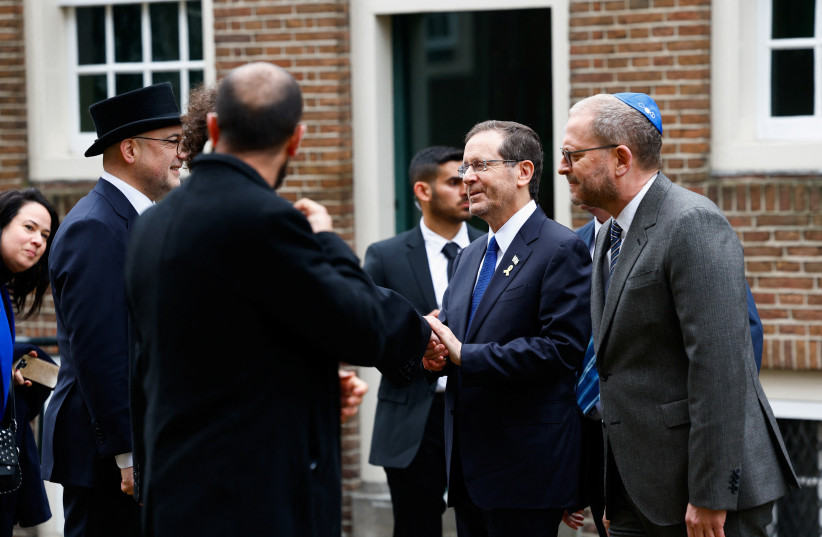As I journey to the Netherlands, I am struck by a profound sense of history in the making. This is not just any visit; it marks a watershed moment as the Netherlands unveils its first-ever official Holocaust museum – a poignant testament to the nation’s commitment to confronting the dark chapters of the not-so-distant past and embracing a future rooted in remembrance and education.
Inaugurating this museum alongside notable Dutch royal and political figures, I am reminded of the words of Elie Wiesel: “For the dead and the living, we must bear witness.” And indeed, as we bear witness to this historic occasion, we honor the memory of those cruelly and horrifically murdered during the Holocaust and reaffirm our collective commitment to ensuring that their stories are never forgotten.
This museum signifies a milestone, nearly 80 years after the end of World War II. It underscores the Netherlands’ acknowledgment of the devastating impact of the Holocaust, particularly on the Dutch Jewish population – the highest percentage of murdered Jews among Western European countries occupied by Nazi Germany.
Yet, beyond pure symbolism, the establishment of this museum is not just a mere gesture; it is a resolute testament to the Netherlands’ dedication to truth and remembrance. It forces us to confront uncomfortable truths about the past, including the acknowledgment of how a segment of the Dutch population was involved in the antisemitic campaign of Nazi Germany and its attempt to annihilate the Jewish people and Jewish culture.
That is why, in addition to my participation in the opening ceremonies of this new Holocaust museum, I am privileged to bestow this coveted award on the descendants of three brave Dutch citizens, recognized by Yad Vashem as Righteous Among the Nations. These individuals embodied a spirit of humanity that stood poised to fight unimaginable evils during the Holocaust. Their stories add to the complex tapestry of Holocaust remembrance and serve as beacons of hope and inspiration for humanity both in our present day as well as for the future.

Today, amid the passage of time, we are once again witness to an all too familiar and worrying trend of antisemitism and ignorance. On 30 November 1943, Esther “Etty” Hillesum, a young Dutch-Jewish intellectual, was murdered. Shortly before she was deported from the Netherlands to her death in Auschwitz, she wrote:
“If we are incapable of offering the impoverished world after the war nothing but our bodies, and a new meaning, which stems from our plight and angst, it won’t be enough. From the camps themselves, new thoughts must project forward and a new understanding needs to shed new light on our wire fences.”
Nearly 80 years later, Hillesum’s poignant words resonate deeply with the current state of Holocaust awareness, especially in the Netherlands.
Holocaust denial amongst Dutch youth
Despite the fact that close to 75% of the Netherlands’ Jewish population was murdered during the Holocaust, nowadays a majority, 53%, including 60% of Dutch Millennials and Gen Z respondents to the 2022 Claims Conference Holocaust Awareness in the Netherlands Survey, did not cite the Netherlands as a country where the Holocaust took place.
This glaring knowledge gap highlights the critical role that institutions like Yad Vashem play in providing accurate historical context and educational resources. With its unique pedagogical approach and wealth of educational materials, Yad Vashem stands poised to support the Netherlands as it assumes full responsibility for Holocaust education.
Etty Hillesum and her legacy encapsulate a profound call to action. The journey toward Holocaust education and remembrance must be ongoing. The inauguration of the Netherlands’ first official Holocaust museum is a significant step forward. It is a testament to the resilience of the human spirit and a solemn vow to never forget the lessons of the past.
As Yad Vashem chairman, I am honored to stand alongside the Netherlands in this pivotal moment, as we reaffirm our commitment to remembrance. Together, let us ensure that the voices of the victims are heard, their stories preserved, and their memory honored for generations to come.
The writer has been chairman of Yad Vashem since August 2021.
